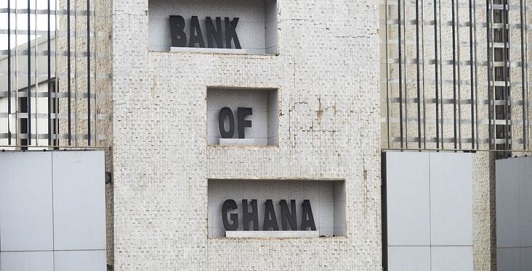The Monetary Policy Committee of the Bank of Ghana has increased the Policy Rate by 100 basis points (1 percent) to 28 percent, citing the need to drive inflation downwards.
“In the interim, the MPC sees the need to remain vigilant and moderate liquidity in the system to underpin macroeconomic adjustments taking place to drive inflation on a downward path,” the Governor of the Bank of Ghana, Dr Ernest Addison, told a press conference on Monday.
Dr Addison said domestic growth conditions, which softened in 2022, were projected to moderate further and remained below potential over the near-term, based on the elevated inflation levels.
READ ALSO: BoG raises policy rate to 27%
The rate of inflation touched a high of 54.1 percent in December, spurred by food inflation.
The updated Composite Index of Economic Activity (CIEA) contracted by 6.2 percent in November 2022, compared with a growth of 10.2 percent in the same period of 2021.
Dr Addison said the CIEA showed continued dip in economic activity, despite the slight improvement in consumer and business sentiments from the latest surveys. In nominal terms, credit to the private sector rose sharply, but was moderated in real terms by price pressures.
The Governor said emerging signs showed that the current macroeconomic conditions were spilling over to the banking sector.
For instance, he said, profitability levels had declined alongside other financial soundness indicators.
Profitability levels in the banking sector have declined, driven by the mark-to-market losses on investments, higher impairments on loans, and rising operating costs. Profit-after-tax was GH¢3.9 billion at end December 2022, representing 18.9 per cent contraction year-on-year, compared to 12.3 percent annual growth recorded in 2021.
“The latest macro-prudential risk assessments indicated increased pressure on solvency and liquidity of banks ahead of the implementation of the Domestic Debt Exchange Programme. To moderate the potential impact on the sector, the Bank of Ghana has announced some regulatory reliefs for banks to help preserve financial stability.
He said the Government’s Staff Level Agreement (SLA) with the IMF spelt out measures to put the fiscal on the path of consolidation.





